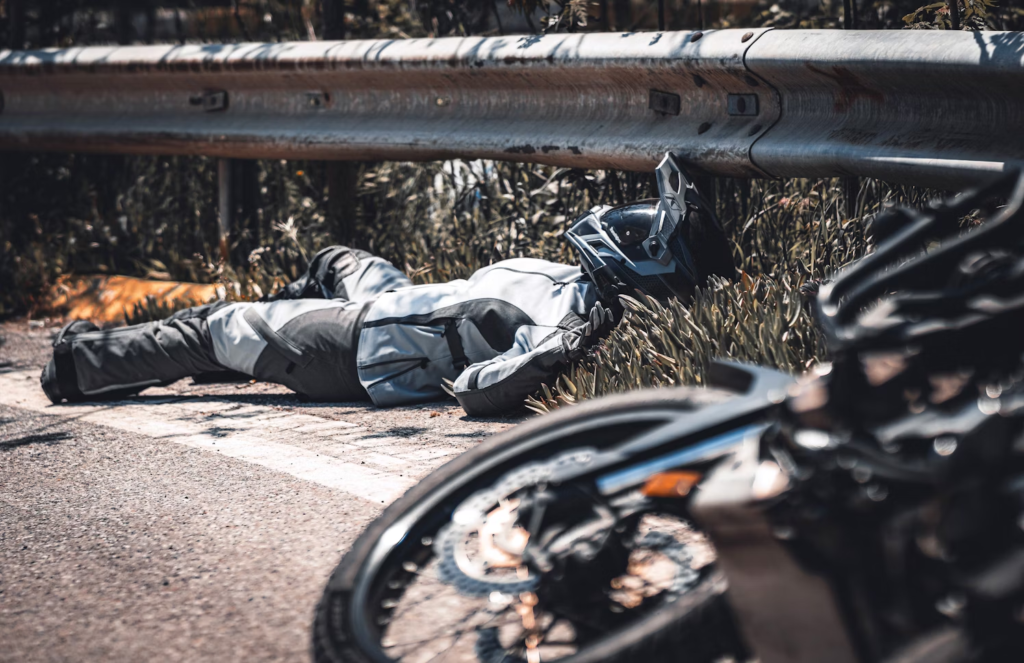Whether you’re in a familiar area or exploring new roads, it’s critical to know what to do if things go wrong. Taking the right steps can help ensure your safety, protect your legal rights, and secure any claims for damages. Here’s a guide on what to do after a motorcycle accident while traveling.
Notify Your Insurance Company and Consider Legal Help
As soon as possible, notify your insurance company about the accident. Provide them with the information you’ve gathered, including photos, witness contacts, and the police report number. If you’re unsure about the legal aspects of the accident, searching for a “motorcycle accident lawyer near me” can provide you with local expertise and guidance, especially if you’re in a location with unfamiliar laws or if there’s any dispute over who’s at fault. An experienced attorney can help you navigate the complexities of insurance claims, compensation for injuries, and recovery for damages to your bike.
- Provide a clear, factual account to your insurer. When speaking with your insurance company, stick to the facts and avoid embellishing details. They may ask for photos and the police report, so have these ready to submit as part of your claim.
- Be cautious about early settlement offers. Some insurance companies may offer quick settlements to close the case before all medical issues or bike damage is fully understood. Make sure to assess all injuries and damages before agreeing to any compensation.
- Consider a lawyer if you’re far from home or dealing with complex issues. If you’re injured in a state or country with unfamiliar laws, hiring a local attorney who understands jurisdiction-specific regulations can ensure you’re not taken advantage of during the claims process. They can also negotiate with insurance companies to maximize your compensation.
Exchange Information and Report the Accident
Make sure to exchange contact and insurance information with the other parties involved. Include details like names, phone numbers, addresses, driver’s license numbers, and insurance policies. Reporting the accident to local authorities is also crucial especially if you’re in a different state or country. A police report provides an official record of the accident and can help resolve any disputes about fault. Cooperate fully with the authorities, but be cautious when discussing details to avoid admitting guilt or downplaying injuries, as this can impact future claims.
- Get detailed contact information from all parties. Besides basic details like names and phone numbers, ask for the license plate numbers, vehicle make and models, and even descriptions of the other drivers involved. Double-check the insurance policy numbers to ensure they’re accurate.
File a Police Report
File a police report even for minor accidents. In some regions, police may not arrive for minor accidents, but you can still file a report at the local station. This report is crucial for insurance purposes, especially if the other party tries to change their version of events later.
Note the officer’s name and badge number. If the police do respond, write down the responding officer’s name and badge number. This information can be helpful if you need to follow up or if you encounter discrepancies in the police report.
Prioritize Safety and Seek Medical Help
Your immediate priority after a motorcycle accident is safety. If you’re able, move yourself and your bike out of traffic to avoid further harm. However, if you suspect serious injuries, do not move and wait for emergency services. Always seek medical attention, even if you feel fine at the moment some injuries, like concussions or internal bleeding, may not present symptoms right away. Calling 911 should be your first move, as medical professionals can evaluate your condition and begin any necessary treatment.
- Check for immediate injuries and those around you. After an accident, adrenaline can mask pain. Once you’re in a safe spot, assess yourself and any passengers for injuries, paying attention to areas like the neck, back, and head that could indicate severe trauma.
Emergency Services
Call for emergency services even if the accident seems minor. Even small crashes can result in significant injuries, and medical documentation is essential if you decide to file a claim. In some states or countries, failing to report an accident can result in fines or other legal consequences.
Stay calm and avoid unnecessary movement. If you suspect a head, neck, or spinal injury, remain still and encourage others to do the same until help arrives. Moving prematurely could aggravate hidden injuries, leading to more severe complications.
Document the Scene
While waiting for help, document the accident scene thoroughly. Use your phone to take photos of your bike, any other vehicles involved, the road conditions, and any visible injuries. These images can serve as critical evidence if you need to file an insurance claim or pursue legal action. If there are witnesses, ask for their contact information and take note of what they saw. Even in remote areas, details matter, and every piece of evidence can support your case.
- Capture wide-angle shots and close-ups. When documenting the scene, ensure you take wide-angle photos that show the broader environment (traffic signs, weather conditions, skid marks) and close-ups of damage to the bike and injuries. This variety can help clarify what happened.
- Jot down key observations while your memory is fresh. Write down your account of the accident, including the sequence of events leading up to it. Your recollection will be most accurate in the moments after the crash, and these details could become crucial later.
- Look for road hazards or contributing factors. Make note of any potholes, debris, or weather conditions that may have contributed to the accident. If you suspect poor road maintenance or other external factors played a role, these can be relevant in potential legal claims.
A motorcycle accident on a road trip can be overwhelming, but knowing what to do can make all the difference. Focus on your immediate safety, gather essential information, and ensure proper medical evaluation. Once you’ve dealt with the immediate aftermath, reporting the accident and protecting your rights are crucial steps to minimize the impact on your trip and long-term well-being. Stay calm, follow the right procedures, and you’ll be in the best position to handle the situation effectively.






